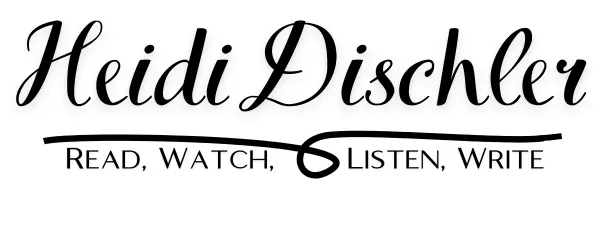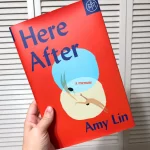5 Things You Have to Do Before Querying Agents for Your Novel
Hey everyone! Today we’re going to talk about the five things you have to do before querying agents for your novel! Each item is a crucial step in the right direction for getting your book noticed. Here are the five things you have to do before querying agents:
- Edit your novel
- Write a synopsis
- Write a query letter
- Perfect your first chapter
- Research literary agents
These things are very important for a novel to be successfully picked up by an agent, and you really can’t skip any step. It’s a lot of work, but it will be so worth it in the end.
Edit Your Novel
Let’s be honest, you’re never truly finished editing your novel. Especially your first one. Even if you think it’s perfect right after you finish it (I did). Even if you’ve gone though it for what feels like the millionth time. Why is it so hard to edit your own novel?
It’s because your novel becomes your baby. It holds your dreams. The characters become like family to you. But you must keep editing! I can’t stress this enough: Get people you know to read it and critique it, especially people you know will be truthful. My husband was that person for me. He read it and gave me the best critiques on the plot, characters, and world-building that I have ever gotten from anyone who I’ve asked to read it. This is because he knew how much it meant to me. He knew how important it was for me to get this story right. So, he was brutally honest. While a lot of our conversations about my writing were uncomfortable, it was the most valuable information I had ever gotten.
The moral of the story here? Keep editing and please get readers who you know will give you honest critiques.
Write a Synopsis
The next three sections were probably the hardest in my personal opinion. Writing your novel? Pshh, that’s easy. Writing about your novel? Now, that’s another story.
The synopsis was the most daunting task out of all of the material that you have to send to literary agents when querying them. The problem with writing a synopsis is that you have to fit your whole entire novel-length baby into two pages. You have to include all of the plot points that are important and leave out what is more of a side-story. But everything is important! Yeah, trust me, I know the feeling. How can you reduce your characters to mere ideas when you worked so hard to make them three-dimensional? How can you smush your complex, wonderfully-thought-out plot onto two tiny pages?
Do the best that you can.
I won’t explain here how to write a synopsis because if I’m being completely honest, I haven’t quite mastered it yet myself. But my personal favorite synopsis-writing breakdown is from MasterClass. They do a wonderful job in their article making it super easy to read, understand, and utilize for your own novel. Now, there’s one more problem that you will stumble upon when writing the synopsis: every agent wants something different. More on that in the last section.
Write a Query Letter
Writing a query letter was never a one-and-done kind of thing for me. I would try one out, write another, and then write another. I would see which was more successful when it came to getting agents to ask for the full manuscript. Again, though, all agents are different and want different things from you as a writer. Does this make your life harder? Absolutely. Do you have to follow the guidelines? Don’t even think about writing a query letter without those guidelines.
When I was writing my query letter, like I mentioned above, I tried many different tactics. Of course, they all followed the guidelines of each agent that I submitted my novel to. One of my favorite articles on how to write a query letter is by Reedsy. They break it down really well and even give you a video, so if you don’t have a lot of time, you can listen to it in the car! And if that method doesn’t work for you, or you don’t have any agents asking for full manuscripts? Try again. All agents have different tastes and like different things, which means one query letter will not work for them all!
Perfect Your First Chapter
Let me tell you, I read so many articles about how to get your book in shape before querying agents. One thing that is a pretty common theme is that you have to perfect your first chapter! That will be the first thing that the agent reads aside from the query letter and synopsis, so it has to be perfect. The first chapter has to introduce your main character, set the stage, and let the reader know exactly what they’re getting into when they start reading your novel. I probably rewrote my first chapter for Words We Never Say at least a dozen times. I’m happy with how it ended up, but it was quite the journey to get there.
The first chapter has to be entertaining. You don’t want the first thing that an agent reads from your novel to be “he woke up from a horrible nightmare.” That’s not original enough. You don’t want it to be a long paragraph about how terrible the weather is. Start your novel somewhere that will allow you to introduce the story and still keep your reader interested without too much fluff. One article that is good to help you with this is from Anne R. Allen’s Blog.
Research Literary Agents
I bet you thought you were finished with writing after you finished the novel, didn’t you? You were very wrong. If you’ve gotten this far, then you have edited your novel, wrote your synopsis, query letter, and perfected your first chapter. What’s left then? Researching agents.
Researching agents is another whole issue in itself. It takes time and dedication and a specific idea of what your novel is about and who your target audience is. You’ll need this information to be able to find the perfect agent for your baby. Once you’ve gotten at least five agents picked out, you can move on to what makes my organizational self so happy: spreadsheets.
I personally love spreadsheets. I use them for budgeting, blog posts, and definitely when I’m querying agents. I set them up like the picture below. First and last name of the agent, where the agent works, date submitted, reply date, average response time (based on the agency’s website), and any important guidelines that I need to know. This is where the spreadsheet comes in handy for that “every agent wants something different” idea. I usually always paste the URL to the agent’s website on the spreadsheet along with guidelines so that every crucial piece of information I need is all in one place. Without having a spreadsheet to keep track of where you submit your novel, who you submit it to, and when you submitted it, you will get so completely and utterly lost that it’s not even funny.
First and last name of the agent, where the agent works, date submitted, reply date, average response time (based on the agency’s website), and any important guidelines that I need to know. This is where the spreadsheet comes in handy for that “every agent wants something different” idea. I usually always paste the URL to the agent’s website on the spreadsheet along with guidelines so that every crucial piece of information I need is all in one place. Without having a spreadsheet to keep track of where you submit your novel, who you submit it to, and when you submitted it, you will get so completely and utterly lost that it’s not even funny.
Have you started submitting your work to agents yet? Did this article help you do it? Let me know in the comments below!
Related posts:
No related posts.


